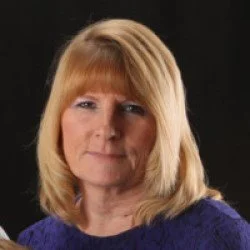Written By: Glenn Michaels
Many senior citizens meaning anyone 62 years young and older want to down size from their current living arrangement. In most cases their children have married and left the home and they no longer desire the dwelling that they presently own. In some cases seniors want to relocate to another area of the United States and HECM for Purchase is a perfect loan for them. The HECM (Home Equity Conversion Mortgage) most commonly called a “Reverse Mortgage” can be used to purchase a home by a senior citizen 62 or older.
The senior citizen can use the mortgage proceeds to purchase a new principal residence. Principal residence is defined as a residence where the borrower resides the majority of the year.
Need Mortgage Training? CLICK HERE to Download Brochure --->>
The purpose of the program was designed to allow seniors to purchase a new principal residence and obtain a reverse mortgage within a single transaction. The program was also designed to enable senior homeowners to relocate to other geographic areas to be closer family members or down size to homes that meet their physical needs, i.e. , handrails, one level properties, ramps, wider doorways, etc.
Borrowers can obtain both the fixed and the adjustable HECM mortgage for the purchase HECM.
Need Mortgage Training? CLICK HERE to Download Brochure --->>
After the loan closes the borrower has sixty (60) days to move in to the new principal residence. Lenders should receive from the borrower an occupancy affidavit and at the time that the borrower moves in another letter that they have moved in. This needs to be in the lenders case binder for insuring purposes.
If a borrower is buying a newly constructed dwelling they must buy a dwelling 100% completed.
The proceeds from the closing is remitted to the closing agent to disburse at the closing. The funds do not initially go to the borrower.
Need Mortgage Training? CLICK HERE to Download Brochure --->>
The eligible property types for HECM purchase are:
Existing one to four unit properties where construction has been completed and the property is habitable as evidenced by local jurisdiction issuance of occupancy or its equivalent.
Can be used to saisfy outstanding payment obligations associated with a land contract.
The property can be used as collateral for the HECM mortgage held fee simple or on a leasehold for not less than 99 years which is renewable, or under lease having the remaining period of not less than 50 years beyond the of the 100th birthday.
Cannot take an application on a property that is under construction and not habitable.
Need Mortgage Training? CLICK HERE to Download Brochure --->>
There is a list of ineligible properties for a Purchase HECM and the ineligible properties are:
Cooperative units
Newly constructed units where a Certificate of Occupancy or its equivalent has not been issued.
Boarding Houses
Bed and breakfast establishments
Existing manufactured homes built before June 15, 1976
At closing a “set aside” or escrow will be established to pay property charges. These are for the payment of the HOA fees, if any, property taxes and property insurance and flood insurance, if any.
All FHA insured properties, forward or reverse must meet minimum property standards. Appraisers must mark their inspection report if the property is in need of repairs. If the property is in need of repairs the appraiser must mark the appraisal as “subject to repairs” and state what the repair items are.
Need Mortgage Training? CLICK HERE to Download Brochure --->>
The FHA Amendatory Clause/Real Estate Certification is required since all HECM’s require an appraisal.
Funds to allow the loan to close can come from all allowable HUD sources except for:
Sweat equity
Trade equity
Rent credit
Cash from the seller or any other person or entity that benefits from the transaction.
Any third parties that is reimbursed directly or indirectly
No sales concessions allowed
As always the FHA strongly suggests that a HECM borrower meet with a HUD reverse mortgage counselor.
Bet you thought reverse mortgages (HECM) was only for a refinance transaction.
About The Author
Glenn Michaels - As an NAMP® Opinion Editorial Contributor, Glenn Michaels is a mortgage underwriting instructor for Mortgage Underwriter University (www.MortgageUnderwriter.org). As a BBA & FHA DE Underwriter, Glenn is a Pace University graduate who also graduated from New York University’s School of Mortgage Finance. Glenn has conducted numerous training classes and has worked in the mortgage banking industry for 38 years. If you're interested in becoming a writer for NAMP®, please email us at: contact@mortgageprocessor.org.














































